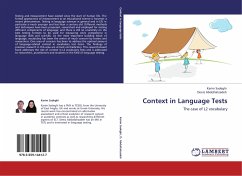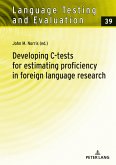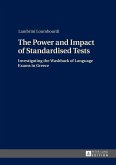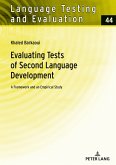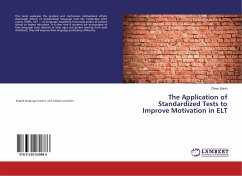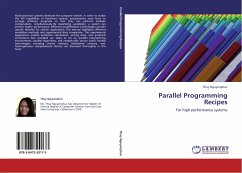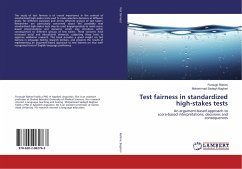Validating Parallel Language Tests investigates the
parallelness of
the school level two equivalent national reading
tests. The study is
based on the test performance of the test-takers and
their
questionnaire responses with regard to the tests. It
also draws on
the responses of the test-takers teachers and the experts
judgments on the two tests. The study uses the
classical test theory
in order to analyse the tests scores. The experts
judgments are
analysed to examine the construct (content) validity
of the tests.
Also, the test task characteristics (using Bachman
and Palmer s
[1996] framework) are examined comparing the two
tests, followed
by an analysis of the test-takers and their teachers
responses. The
findings suggest that the two tests do not appear to
be parallel
which is caused by the discrepancy between them with
regard to
reading skills and test task characteristics. This
study also
recommends certain ways that can help the examining
body and the
test developers to improve the parallel tests. This
book will be
useful for postgraduate students, their tutors and
researchers
interested in validating language tests and assessment.
parallelness of
the school level two equivalent national reading
tests. The study is
based on the test performance of the test-takers and
their
questionnaire responses with regard to the tests. It
also draws on
the responses of the test-takers teachers and the experts
judgments on the two tests. The study uses the
classical test theory
in order to analyse the tests scores. The experts
judgments are
analysed to examine the construct (content) validity
of the tests.
Also, the test task characteristics (using Bachman
and Palmer s
[1996] framework) are examined comparing the two
tests, followed
by an analysis of the test-takers and their teachers
responses. The
findings suggest that the two tests do not appear to
be parallel
which is caused by the discrepancy between them with
regard to
reading skills and test task characteristics. This
study also
recommends certain ways that can help the examining
body and the
test developers to improve the parallel tests. This
book will be
useful for postgraduate students, their tutors and
researchers
interested in validating language tests and assessment.


